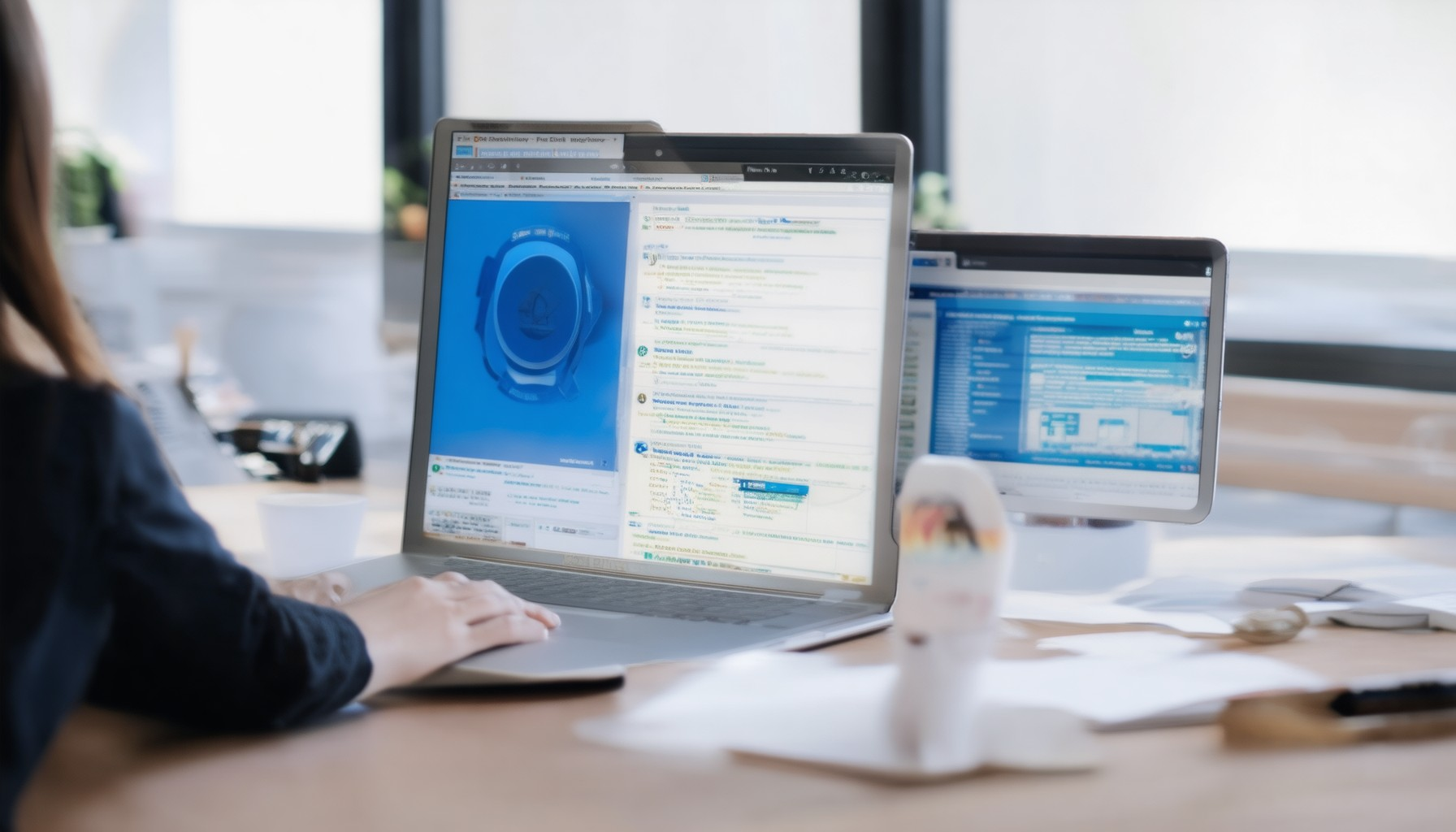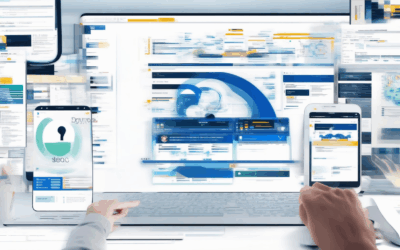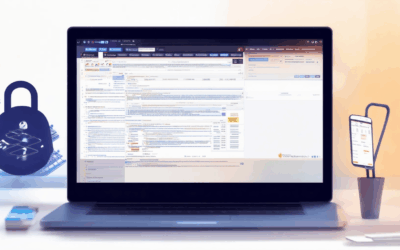In today’s interconnected world, safeguarding your online privacy has become more crucial than ever. With increasing reliance on digital platforms, individuals are exposed to numerous risks, from data breaches to invasive advertising. Enhancing your online privacy isn’t just about technical measures—it involves mindful behavior and informed choices. Whether you’re concerned about government surveillance, corporate data collection, or simple curiosity about how much of your life is tracked online, this guide offers practical strategies to protect yourself. From understanding fundamental privacy concepts to exploring tools that shield your identity, this article equips you with actionable steps to reclaim control over your digital footprint. By adopting proactive measures, you can minimize exposure, secure your information, and navigate the web with confidence. Join us as we delve into the complexities of online privacy, exploring everything from essential practices to cutting-edge technologies designed to enhance your safety in the digital age.
Key Takeaways
– Minimize Digital Footprints: Reduce your online trace by using private browsing modes and avoiding unnecessary cookie deletion.
– Use Private Browsing Modes: Employ tools like Firefox’s Private Browsing or Chrome’s Incognito Mode for enhanced privacy.
– Encrypt Communications: Opt for secure platforms like Signal or WhatsApp for confidential messaging.
– Protect Personal Information: Avoid sharing sensitive details online and enable two-factor authentication for added security.
– Monitor Account Activity: Regularly check for unauthorized logins and use tools like LogDog for real-time monitoring.
– Encrypt Files and Folders: Secure your data using VeraCrypt for external storage devices.
– Avoid Public Wi-Fi Risks: Use a VPN when accessing public networks to safeguard your data.
– Be Cautious with Links and Downloads: Refrain from clicking on suspicious links and use antivirus software like Norton Antivirus.
– Adjust Privacy Settings: Enable “Do Not Track” and use tools like BlindBrowser to limit data collection.
– Minimize Oversharing: Avoid sharing personal details on social media and engage mindfully online.
– Prepare for Data Breaches: Use strong passwords, enable two-factor authentication, and stay informed about account security.
– Utilize Privacy-Focused Tools: Consider platforms like BlindBrowser for secure browsing and identity protection.
– Use Strong Passwords and Password Managers: Create complex passwords and use tools like LastPass for secure account management.
– Update Software Regularly: Patch vulnerabilities to protect against potential data exposures.
– Encrypt Your Devices: Secure your hardware and cloud storage to prevent unauthorized access.
– Manage Cookies and Browser History: Limit location data sharing and clean up unnecessary browser history.
– Consider VPNs for Enhanced Privacy: Mask your IP address and encrypt traffic with reliable VPN services like ExpressVPN.
– Avoid Suspicious Links and Downloads: Stay vigilant with unknown sources and rely on antivirus tools for file safety.
– Check Privacy Settings: Periodically review and adjust settings on all platforms to maintain control over your data.

What Can You Do to Enhance Your Online Privacy?
To safeguard your online privacy, consider implementing these strategies:
1. Utilize a Virtual Private Network (VPN)
A VPN encrypts your internet traffic and masks your IP address, offering enhanced privacy. Choose a reputable provider to ensure your data remains secure during transmission.
2. Adopt Secure Browsing Habits
Stick to trusted platforms and avoid suspicious links. Enable HTTPS when browsing to ensure data encryption. Regularly update your browser and devices to patch vulnerabilities.
3. Erase Unnecessary Data
Clear your browser history, cookies, and cache to remove traces of your online activity. Use disk cleanup tools to eliminate unused files that may contain sensitive information.
4. Enable Privacy Features
Activate built-in privacy tools on your devices, such as Incognito Mode or Tracking Protection. These features help prevent tracking and reduce data collection.
5. Explore Privacy-Focused Browsers
Consider using browsers designed for privacy, like Brave or Firefox with Enhanced Tracking Protection. These browsers block trackers and offer robust ad-blocking capabilities.
6. Conduct Third-Party Audits
Use tools like WHOISXML API to analyze domains and verify data practices. This helps identify potential risks and ensures services comply with privacy regulations.
7. Minimize Device Usage
Limit accessing personal accounts on shared or public devices. Use private browsers and log out of accounts when finished to prevent unauthorized access.
8. Monitor Account Activity
Regularly check your account settings and transaction history. Enable two-factor authentication and set up alerts for suspicious activities to detect unauthorized access early.
By following these steps, you can significantly enhance your online privacy and protect your personal information from potential threats. Stay informed and proactive in managing your digital presence.
How to Be More Private Online
Protecting your online privacy is crucial in today’s digital age. Here are some effective strategies to enhance your privacy:
- Use Privacy-Focused Browsers: Consider browsers like Firefox with privacy add-ons or Blind Browser for enhanced security.
- Enable Tracking Protection: Activate tracking protection features in your browser to block trackers and ads.
- Regularly Clear Cookies: Delete cookies and browsing history periodically to prevent data collection.
- Use VPN Services: A Virtual Private Network (VPN) encrypts your internet connection, offering an added layer of privacy.
- Encrypt Communications: Use encrypted messaging apps like Signal or WhatsApp for secure conversations.
- Minimize Data Sharing: Refrain from sharing personal information unnecessarily and review privacy policies before consenting.
- Use Incognito Modes: Browser incognito modes prevent saving history and cookies, offering increased privacy during sessions.
- Disable Location Services: Turn off location services when not in use to prevent unwanted data collection.
- Consider Hardware Encryption: Use encrypted drives and storage devices to protect sensitive data stored locally.
- Be Cautious on Public Wi-Fi: Avoid accessing sensitive accounts on public Wi-Fi networks without a VPN.
Additional Tips:
- Ad Blockers: Use ad blockers to reduce tracking and intrusive ads.
- Privacy Tools: Explore tools like Don’t Track Me for comprehensive cookie blocking.
- Secure Passwords: Use unique and strong passwords for every account and consider a password manager like LastPass .
- Two-Factor Authentication: Enable two-factor authentication (2FA) for your critical accounts to add an extra security layer.
Stay Informed:
- Follow Guidelines: Regularly consult reputable sources like Electronic Frontier Foundation for updates on privacy laws and best practices.
- Understand Legal Framework: Familiarize yourself with data protection laws such as GDPR and CCPA to understand your rights and obligations.
By adopting these measures, you can significantly enhance your online privacy and safeguard your personal information from unauthorized access.

How to Keep Your Information Private Online
Protecting your personal information online requires a combination of proactive measures and awareness. Here’s a structured approach to safeguarding your data:
- Password Management:
- Create complex passwords using a mix of letters, numbers, and symbols.
- Change passwords frequently, ideally every 90 days, to reduce exposure risks.
- Use a password manager to store and organize your credentials securely.
- Two-Factor Authentication (2FA):
- Enable 2FA for your primary accounts, such as email, banking, and social media.
- Choose authenticator apps for added security over SMS-based codes.
- Data Encryption:
- Look for HTTPS in website URLs and the padlock icon in your browser to confirm secure connections.
- Use encrypted communication channels for sensitive data transmission.
- Public Wi-Fi Caution:
- Avoid conducting financial transactions on public Wi-Fi networks.
- Connect to trusted networks whenever possible and disable automatic Wi-Fi connections.
- Social Media Privacy:
- Adjust privacy settings to limit sharing of personal details like addresses and phone numbers.
- Review and update your profile information regularly.
- Virtual Private Networks (VPNs):
- Consider using a VPN for anonymous browsing, especially on public networks.
- Research and select a reputable VPN provider to ensure reliability and security.
- Third-Party App Management:
- Review app permissions and remove unnecessary access to your personal information.
- Periodically check for updates and new permissions required by the apps you use.
- Cookies and Tracking:
- Manage cookie settings in your browser to restrict tracking.
- Use browser extensions to block trackers and adware.
- Data Breach Monitoring:
- Regularly monitor your accounts for suspicious activity or unauthorized access.
- Set up alerts for your bank and credit cards to detect fraudulent transactions.
- Cloud Storage Security:
- Ensure cloud storage services use end-to-end encryption and have strong privacy policies.
- Back up data using encrypted drives or secure cloud storage solutions.
- Educate Yourself Continually:
- Stay informed about emerging threats and cybersecurity trends.
- Participate in security awareness programs and training sessions.

How to Avoid Invasion of Privacy Online
To protect your privacy online, follow these essential steps:
- Minimize Digital Footprints
- Use private browsing modes like Firefox’s Private Browsing or Chrome’s Incognito Mode .
- Delete unnecessary cookies and browser history regularly.
- Consider using a VPN like ExpressVPN to mask your IP address and encrypt internet traffic.
- Protect Personal Information
- Enable two-factor authentication (2FA) for your accounts to add an extra layer of security.
- Avoid sharing personal details like phone numbers or home addresses online unless absolutely necessary.
- Use strong, unique passwords for every account and consider password managers like LastPass to keep track of them securely.
- Monitor Account Activity
- Regularly check your accounts for unauthorized logins or suspicious activity.
- Use tools like LogDog to monitor your online accounts in real-time.
- Change passwords immediately if you suspect a breach.
- Encrypt Sensitive Data
- Use encrypted communication channels like Signal or WhatsApp for messaging.
- Encrypt files and folders using tools like VeraCrypt for external drives or storage devices.
- Be Mindful of Public Wi-Fi
- Avoid using public Wi-Fi for sensitive activities unless you’re certain it’s secure.
- Use a VPN whenever connecting to public networks to encrypt your data in transit.
- Avoid Suspicious Links and Downloads
- Don’t click on links from unknown sources or download files from untrusted websites.
- Use reputable antivirus software like Norton Antivirus to scan files before opening them.
By following these steps, you can significantly reduce the risk of privacy invasion and enhance your online security. Remember, staying vigilant and informed is the best defense against privacy threats.
How to Avoid Revealing Too Much Information Online
Keeping your online activities private is essential in today’s digital age. Here are some strategies to help you avoid revealing too much information:
- Adjust Privacy Settings:** Change your browser’s privacy settings to limit tracking. Enable features like “Do Not Track” and use private browsing modes like BlindBrowser.com for added anonymity.
- Minimize Digital Footprints:** Use pseudonyms or anonymous accounts for sensitive transactions. Avoid sharing personal details like home addresses or phone numbers online.
- Avoid Oversharing:** Refrain from posting sensitive information on social media. Be cautious about what you share and whom you share it with.
- Monitor Online Activity:** Regularly check what data is being collected about you. Use browser extensions like uBlock Origin to block trackers.
- Prepare for Data Breaches:** Educate yourself on protecting your accounts. Use strong passwords, enable two-factor authentication, and regularly monitor your accounts for suspicious activity.
- Engage Mindfully Online:** Be aware of the information you share in forums or chat rooms. Avoid clicking on suspicious links or providing personal information to unknown parties.
- Utilize Privacy-Focused Tools:** Consider using platforms like BlindBrowser.com to browse securely and safeguard your online identity.

How to Protect Your Identity Online
Protecting your identity online is crucial in today’s digital age. Here are essential steps to safeguard your personal information:
- Use Strong Passwords:** Create complex passwords with a mix of letters, numbers, and symbols. Avoid reusing passwords across multiple platforms.
- Enable Two-Factor Authentication (2FA):** Add an extra layer of security to your accounts by enabling 2FA, which requires a second form of verification, often a unique code sent to your phone.
- Update Software Regularly:** Keep your operating systems, apps, and browsers updated to patch vulnerabilities that could expose your data.
- Avoid Suspicious Links and Downloads:** Be cautious before clicking on unknown links or downloading files from untrusted sources.
- Monitor Your Accounts:** Regularly check for unauthorized transactions or changes in your account details.
- Encrypt Your Devices:** Use encryption for your hard drives, USBs, and cloud storage to prevent unauthorized access.
- Manage Cookies and Browser History:** Limit the sharing of location data and delete unnecessary cookies to reduce tracking.
- Consider Using Privacy Tools:** Utilize VPNs like BlindBrowser to mask your IP address and enhance privacy.
- Minimize Oversharing:** Avoid sharing personal information on social media unless it’s necessary.
- Check Privacy Settings:** Periodically review and adjust your privacy settings on all platforms to ensure they’re optimized for your needs.
Final Thought: Online privacy is a shared responsibility. By following these steps, you can significantly reduce the risk of identity theft and data breaches.




